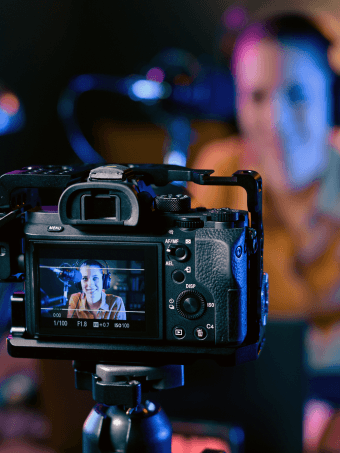The Power of a Personal Brand
A personal brand is the unique combination of skills, values, experiences, and personality traits that define an individual. It is the narrative you build around yourself, and it plays a crucial role in shaping how others perceive you. With the advent of social media, personal branding has gained immense momentum. Platforms like Instagram, YouTube, and TikTok have provided individuals with unprecedented opportunities to showcase their talents, share their stories, and connect with a global audience. This has led to the emergence of a new breed of influencers – individuals who have cultivated a substantial following and wield significant influence over their followers' purchasing decisions and lifestyle choices.
Entrepreneurs, too, recognize the power of personal branding. In the business world, a personal brand can lend credibility, trustworthiness, and a relatable face to a company. Consumers often connect more with the people behind a brand than with the brand itself. This is especially true for startups and small businesses, where the founder's story and vision can resonate deeply with potential customers.
The Importance of Trademarking
Trademarking involves registering a unique name, logo, or symbol that distinguishes your products or services from those of others in the marketplace. It provides legal protection against unauthorized use of your brand identity, preventing confusion among consumers and safeguarding your reputation.
For influencers and entrepreneurs alike, trademarking offers a range of benefits:
1. Protection from Imitation: In the digital realm, imitation can be a sincere form of flattery, but it can also harm your brand's integrity. Trademarking prevents others from using a name or logo similar to yours, intentionally or not, which could lead to audience confusion or the dilution of your brand's distinctiveness.
2. Brand Value and Monetization: As an influencer or entrepreneur, your personal brand can be a valuable asset. Brands might approach you for collaborations, and potential investors might consider your brand's reputation when evaluating business opportunities. A registered trademark adds a layer of professionalism and credibility that can attract such partnerships.
3. Legal Recourse: Trademark registration provides you with legal grounds to take action against individuals or entities that infringe upon your brand. This could involve using your brand name or logo without permission, potentially causing financial harm or damaging your brand's reputation.
The Trademarking Process
The process of trademarking involves several steps:
Search: Before applying for a trademark, it's essential to conduct a thorough search to ensure that your desired brand name or logo doesn't infringe upon existing trademarks. This helps avoid potential conflicts and rejections during the application process.
Application: Once you've determined that your desired brand identity is available, you can submit a trademark application to the appropriate government agency. This process involves providing information about your brand, the products or services it represents, and the specific class under which it falls.
Examination: After submitting your application, it will go through an examination process to ensure it meets all legal requirements. This includes assessing whether the brand is distinctive enough to be granted trademark protection.
Publication and Opposition: In many jurisdictions, trademark applications are published in official gazettes, allowing others to oppose the registration if they believe it conflicts with their own trademarks. If no oppositions are raised within a specific period, your trademark will move forward.
Registration: Once your trademark application is approved and there are no oppositions, you will receive a certificate of registration. This grants you exclusive rights to use the registered brand identity in connection with the specified goods or services.
Takeaway
When it comes to personal branding, trademarking holds immense importance for influencers and entrepreneurs alike. As personal brands gain traction and influence, protecting them becomes essential for maintaining reputation, credibility, and distinctiveness. From preventing imitation to enabling legal recourse, trademarking offers a range of benefits that can prove invaluable in the long run. Whether you're an influencer building a dedicated following or an entrepreneur establishing a new business, the power of trademarking your personal brand cannot be overstated. It's a strategic investment that safeguards your identity and sets you on a path toward lasting success in the digital age.
FAQs - Want to Protect Your Personal Brand?
1. Why should influencers and entrepreneurs trademark their personal brand?
Trademarking protects your unique identity—like your name, logo, or brand aesthetic—from being copied or misused. For influencers and entrepreneurs, a trademark helps prevent imitation, maintains credibility, and strengthens brand value. It also gives you legal rights to stop others from using your brand without permission, ensuring that your reputation stays intact.
2. How does trademarking increase brand value?
A registered trademark adds professionalism and legitimacy to your brand. It shows potential collaborators, sponsors, and investors that you're serious about protecting your identity. Whether you’re landing brand deals or seeking funding, a trademark makes your personal brand more attractive, secure, and marketable.
3. What are the basic steps to trademark your personal brand?
The process includes:
Search: Conduct a trademark search that makes sure your brand name or logo isn’t already taken.
Application: File with the relevant trademark office, including product/service categories.
Examination: Authorities review whether your brand is eligible for protection.
Publication: Others can oppose if they believe your mark conflicts with theirs.
Registration: If approved, you get exclusive rights to use your trademark.
Monitoring: Regularly check trademark databases and monitor social media platforms to ensure no one's misusing your trademark.
Each step helps ensure your personal brand is protected legally and publicly recognized.


